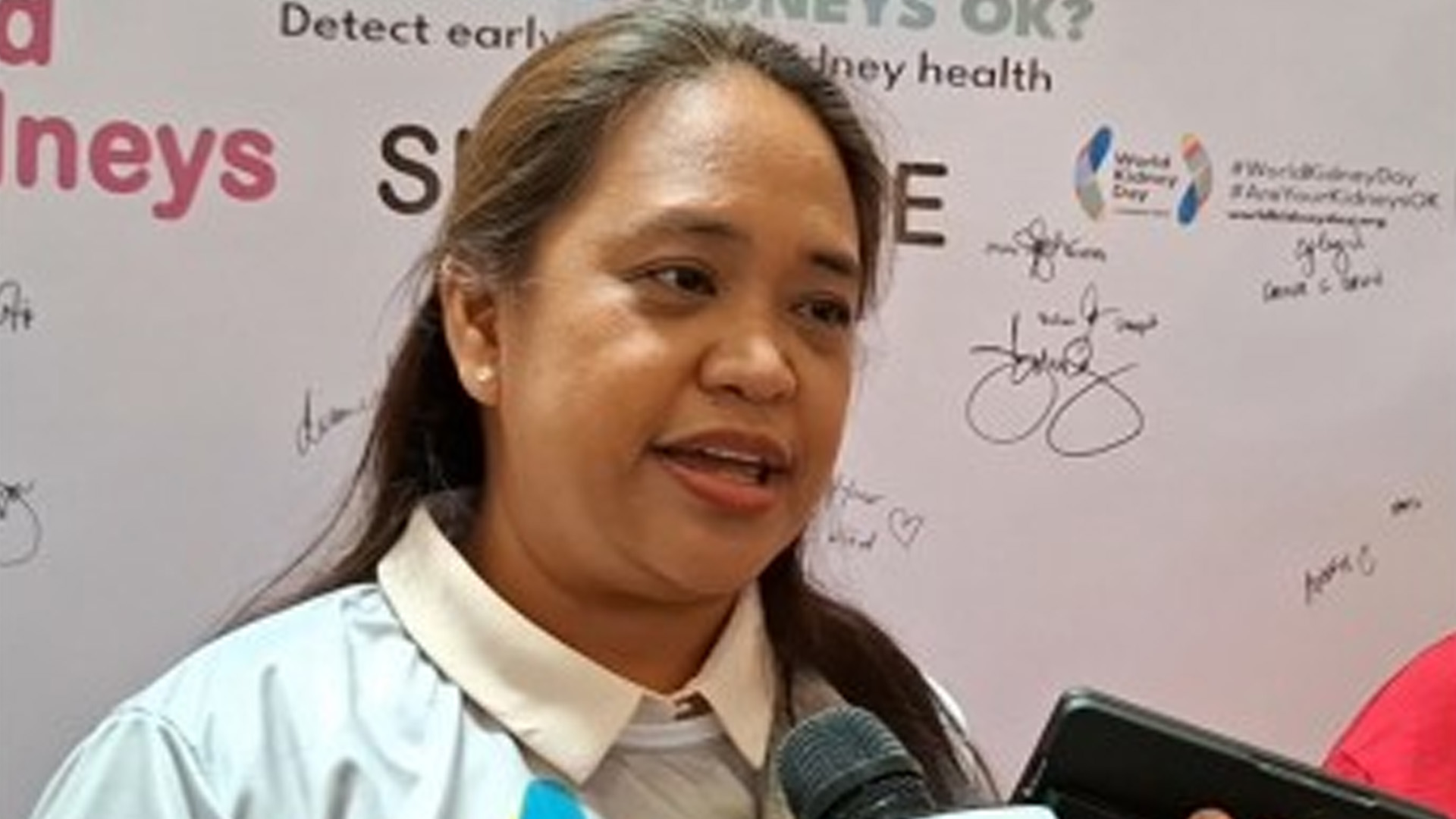As the world prepares to mark World Kidney Day (WKD) on March 14, nephrologists are reminding the public to prioritize kidney health and seek early consultations for detection and prevention.
In an interview Tuesday, Dr. Ma. Theresa Bad-ang, nephrologist and head of the Southern Philippines Medical Center – Human Advocate and Retrieval Effort, emphasized the importance of this year’s WKD theme, “Are Your Kidneys OK?”
The campaign aims to raise awareness about kidney health and encourage proactive measures to protect the kidneys.
According to the Philippine Society of Nephrology, kidney disease is a growing health concern in the country, with an estimated 90,000 Filipinos suffering from end-stage renal disease (ESRD) undergoing dialysis, based on PhilHealth data.
“The good news is that many cases of kidney disease can be prevented or delayed through lifestyle changes and early detection,” Bad-ang said.
She urged the public to take the following steps to protect their kidneys:
- Get tested for kidney disease if at risk (e.g., diabetes, hypertension, family history).
- Maintain a healthy lifestyle, including a balanced diet, regular exercise, and adequate hydration.
- Manage underlying health conditions, such as diabetes and hypertension.
- Avoid smoking and limit alcohol consumption.
“Have a healthy lifestyle – eat right, hydrate yourself, avoid salty foods, and exercise regularly. If you notice any issues, particularly with your urine, have yourself checked,” Bad-ang advised.
She also stressed the importance of early intervention for those with symptoms or risk factors.
“If you find blood in your urine or if you’re diabetic, consult your doctor immediately. Diabetics should have their urine checked regularly. Knowing your kidney function and preventing kidney disease should be a priority,” she added.
The group also organized free kidney screenings, health lectures on prevention and management, and fitness and wellness activities. The event also featured exhibits on kidney health, nutrition, and an organ donation drive. (PNA)







